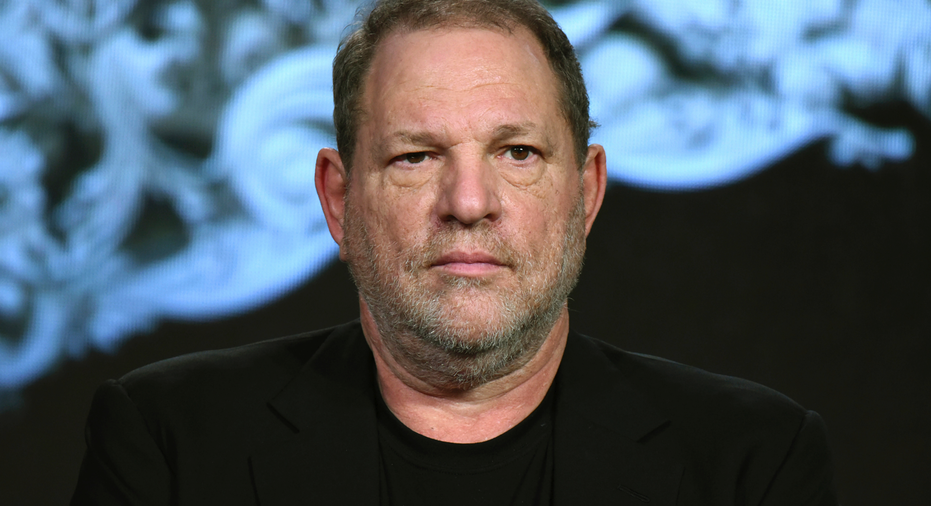Investor group cancels deal to buy Weinstein Co.

NEW YORK – A group of investors pulled out of a deal to buy the beleaguered Weinstein Co. on Tuesday after discovering tens of millions of dollars in undisclosed debt, according to people familiar with the negotiations.
Businesswoman Maria Contreras-Sweet, who has been leading the group of buyers along with billionaire investor Ron Burkle, said in a statement that "disappointing information about the viability of completing this transaction" had led her to call off the sale.
She didn't offer further details. But two people familiar with the proceedings said the buyers came across documents showing liabilities beyond the $225 million the buyers had been prepared to take on. One of the people said the documents showed $64 million in additional debt. Both people spoke on condition of anonymity because they weren't authorized to discuss private negotiations publicly.
The Weinstein Co., which has produced and distributed Oscar winners such as "The King's Speech" and "Silver Linings Playbook," has been trying to stave off bankruptcy since sexual assault and harassment allegations emerged last fall against its co-founder, the Hollywood mogul Harvey Weinstein. Contreras-Sweet's buyout offer had presented the best hope for avoiding that fate. But the deal was plunged into turmoil after New York State Attorney General Eric Schneiderman filed a lawsuit against the studio last month.
The announcement came just days after Contreras-Sweet and the Weinstein Co. revived the deal following arduous negotiations with Schneiderman. It marks the second time in two weeks that the sale has been called off. The first time, it was the Weinstein Co. that pulled out, announcing it would file for bankruptcy protection because the buyers had failed to live up to commitments. Talks to revive the deal resumed soon afterward.
It was unclear if there is any chance of reviving the sale. One of the people close to the talks said, "the deal is dead."
In a statement Tuesday night, representatives from the Weinstein Co. said they were "disappointed" by the announcement.
"Although we publicly predicted this outcome, the Board entered last week's agreement in the hope and good faith that a transaction would save this Company and its employees," the Weinstein Co.'s board of directors said. "The investors' excuse that they learned new information about the Company's financial condition is just that — an excuse."
The board said it would continue to determine if there were any "viable options" outside of bankruptcy. In the meantime, it said it was pursuing "an orderly bankruptcy process" to maximize the company's value.
Bankruptcy proceedings could also renew the interest of several major entertainment companies who had offered to buy assets of the company, including Lionsgate Entertainment and Miramax, the studio formerly led by Harvey Weinstein and his brother Bob. Contreras-Sweet, a former small business administrator in the Obama administration, said her group might also consider buying some assets out of bankruptcy.
The Weinstein Co.'s most desirable asset is its 277-film library, which includes award-winning films from big-name directors like Quentin Tarantino and horror releases from its Dimension label. Its television production company also has some potentially valuable titles, including the long-running fashion show "Project Runway."
The Weinstein Co.'s unreleased films include the Thomas Edison tale "The Current War," with Benedict Cumberbatch, and "Mary Magdalene," starring Rooney Mara. The company has already shed some upcoming projects. After a bidding war last year, it sold the rights to "Paddington 2," released in January, to Warner Bros. for about $15 million.
Contreras-Sweet, who had no prior experience in the entertainment industry, edged out other bidders for the company with a proposal that would have kept the company mostly intact and its roughly 150 workers employed. She had pledged to transform the studio into a women-led venture with a female-majority board, of which she would be the chairwoman. Contreras-Sweet said she remains open to other ways of pursuing that goal.
"I believe that our vision to create a women-led film studio is still the correct course of action," Contreras-Sweet said. "To that end, we will consider acquiring assets that may become available in the event of bankruptcy proceedings, as well as other opportunities that may become available in the entertainment industry."
Schneiderman's lawsuit, filed on behalf of the company's employees, had thrown a wrench in the sale a day before it was set to be signed. The attorney general said he acted out of concerns that there were insufficient guarantees that Weinstein's accusers would be compensated — and that executives who enabled the alleged misconduct would remain at the helm of the new company.
During negotiations over the past three weeks, Schneiderman said the buyers and sellers had satisfied his demands of adequate compensation for the victims, protection for the employees and ensuring that those responsible for Weinstein's alleged abuses would "not be unjustly rewarded."
"We'll be disappointed if the parties cannot work out their differences and close the deal," said Amy Spitalnick, a spokeswoman for Schneiderman's office. "Our lawsuit against the Weinstein Company, Bob Weinstein, and Harvey Weinstein remains active and our investigation is ongoing."



















